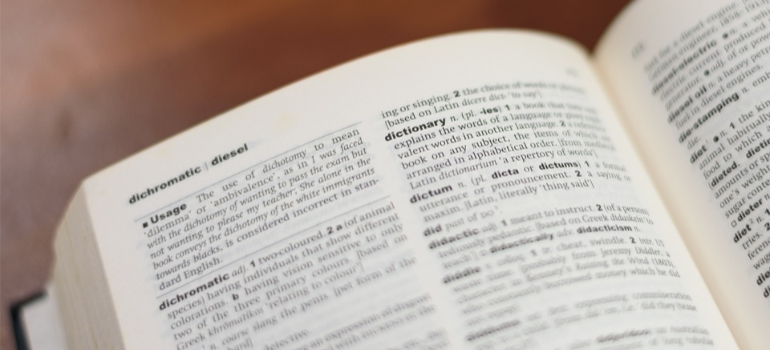PEIA Insurance Can Help Guide You Through The Recovery Process
At Harmony Ridge Recovery Center, we are committed to helping PEIA beneficiaries explore their insurance options and utilize their benefits for rehab services.
Between different health insurance plans with optional additions and subtle limitations, few of us are entirely clear on what exactly our health insurance covers – from emergency health services to drug rehab costs. Different rehab programs enjoy different levels of coverage as well, only complicating things further. In West Virginia specifically, PEIA insurance rehab coverage is a very common unfortunate example of such confusion.
As pioneers among our WV peers, we at Harmony Ridge Recovery recognize this natural confusion. While this is quite a complex subject to cover thoroughly, in this article we will strive to answer the questions you might have on PEIA insurance and its rehab coverage.
PEIA Insurance - All You Need To Know
First and foremost, before delving into PEIA insurance rehab coverage, let’s begin with the fundamentals of PEIA insurance itself.
The acronym it is known by stands for WV Public Employees Insurance Agency. As the name implies, PEIA differs from major insurance providers which are entirely private or associated with the federal government. Instead, PEIA is funded by the state of West Virginia, relying “almost solely on the premiums paid directly by its participating employers and employees” for revenue.
As regards its history and goals, the Agency notes:
“PEIA was established under the Public Employees Insurance Act of 1971, to provide hospital, surgical, group major medical, prescription drug, group life, and accidental death and dismemberment insurance coverage to eligible employees; and to establish and promulgate rules for the administration of these plans.”
Thus, PEIA insurance has a distinctly local focus within the state of West Virginia. As the Agency notes, “benefits are made available to all active employees of the State of West Virginia and various related State agencies and local governments”. This is vital to ensuring eligibility, should you be considering PEIA insurance plans.
For a deeper overview of PEIA and more quick facts on it, you may also visit the official West Virginia Chamber’s website.

PEIA Insurance Plans
That said, PEIA insurance rehab coverage will largely depend on the plan in question. While PEIA does not offer as many plans as other providers, making your research easier, it does offer plenty. For your convenience, here we may briefly outline them so you may better understand your benefits.
#1 Preferred Provider Benefit (PPB) Plan A
PPB Plan A comes with the highest premiums. However, it also comes with lower deductibles, out-of-pocket maximums, and drug copays.
#2 Preferred Provider Benefit (PPB) Plan B
In contrast, PPB Plan B comes with lower premiums, but higher deductibles, out-of-pocket maximums, and drug copays. The stark difference between the two allows beneficiaries to best meet their needs.
#3 Preferred Provider Benefit (PPB) Plan C
Unlike both, PPB Plan C is a high-deductible plan. Instead of a more robust set of offerings, it comes with the option of setting up a Health Savings Account or a Health Reimbursement Arrangement to cover expenses.
Given these features, Plan C stands out among the 4 basic plans. For a summary of it, you may consult the Agency’s relevant page.
#4 Preferred Provider Benefit (PPB) Plan D
A more affordable option, PPB Plan D comes with lower premiums. Unlike Plan B, however, which is more flexible in this regard, most services are limited to West Virginia providers only.
Nonetheless, Plan D shares many common features with Plans A and B. For a summary of all 3, you may consult the Agency’s relevant page.
#5 The Health Plan
Finally, The Health Plan consists of two parts; Health Maintenance Organization Plans A and B, and Preferred Provider Organization.
For a deeper overview of each plan’s offerings and details on PEIA insurance rehab coverage, you may also consult the Agency’s plan descriptions page.

Does PEIA Insurance Cover Addiction And Mental Health Treatment?
Having highlighted the above, here we should clarify that rehab coverage can differ quite significantly across different cases. A wide array of factors affects it, such as:
- Services covered by an insurance provider’s plan
- Co-insurance with other insurance providers
- Exact services required for addiction treatment
- Services received by network versus non-network providers
- Necessary specialized medical equipment and other costs
- Duration of addiction treatment
In addition, services received for addiction treatment must be “medically necessary”; demonstrably required, and proven appropriate and effective. This is crucial to note, especially as regards PEIA insurance rehab coverage, as we’ll cover below.

Which Addictions Can Be Treated?
That said, you should not come to believe any addiction may not be treatable. To set your mind at ease, we will outline the most significant addictions that we at Harmony Ridge and our West Virginia peers can treat under PEIA coverage.
- Cocaine. A powerful illicit stimulant, cocaine is highly addictive and often destructive. Cocaine addiction rehab can treat this common addiction.
- Fentanyl. A potent painkiller, Fentanyl also sees widespread misuse fueling addiction. Fentanyl detox treatment can be challenging, but it’s demonstrably effective.
- Heroin. An illicit drug with notorious potential for abuse, heroin has notable overdose rates. Nonetheless, heroin rehab centers in West Virginia and across the country continue to treat this addiction type.
- Ambien. Ambien’s medical use is treating insomnia, under FDA approval, but prolonged use does fuel addiction. Ambien rehab offers effective addiction treatment in response.
- Barbiturates. A type of depressants used to treat sleeping disorders, barbiturates have also proven to become highly addictive after prolonged use – requiring swift barbiturates rehab.
- Benzodiazepine. Better known as “benzo”, this type of depressant is unfortunately quite addictive as well. Fortunately, benzo rehab is both widely available and highly effective.
- Marijuana. Beyond its medical uses, marijuana does see illicit use which can lead to addiction as well. Services for marijuana rehab West Virginia offers can safely treat this addiction type as well.
- Stimulants. A broader drug type, stimulants such as Adderall are often misused and highly addictive – as our stimulants addiction rehab center can attest to.
- Opiates. Another broader drug type, opiates spearhead the nationwide opioid addiction epidemic. Our opiate rehab center comes fully equipped to treat this type of addiction.
- Meth. Lastly, Methamphetamine is a notoriously common and highly addictive illicit drug. To treat this addiction, we proudly operate the best meth rehab center West Virginia has to offer.

What Types of Programs Does PEIA Cover?
PEIA insurance rehab coverage depends more on addiction treatment programs than on addiction types. To explain this, here we may cover the most common programs alongside their coverage.
Inpatient Programs
Inpatient programs, also known as residential programs, take place in clinical settings. They follow a thorough diagnosis and establish clinical services a patient will require. A typical program for Inpatient drug rehab in WV will follow and include:
- Medical detoxification. Also known as medically-assisted treatment (MAT), detox with medical assistance and under clinical supervision is typically necessary for rehab programs.
- Co-occurring mental health disorder diagnosis. Better known as dual diagnosis, this type of diagnosis also occurs in clinical settings and informs the course of rehab.
- Personalized services. Better known as case management, specialized services such as pharmacotherapy may also occur at this stage and inform aftercare plans.
Naturally, the vast majority of insurance providers and plans cover such essential services. PEIA is no exception in this regard.
Intensive Outpatient Programs
Beyond clinical settings, Intensive Outpatient Programs (IOPs) and Outpatient Programs (OPs) are among the most common rehab programs for milder cases and progressing individuals. Any robust intensive outpatient program West Virginia has to offer will typically entail:
- Group counseling and therapy, including 12-step meetings
- Pharmacotherapy and medication management where necessary
- Continued case management
While such services are indeed removed from clinical settings, they remain essential and largely overlap with the above. However, prolonged IOPs and OPs may begin to not be covered as extensively, as health insurance plans do come with such limitations.

Contact Harmony Ridge Today!
The first step toward achieving recovery is to reach out to one of the rehabs in WV that can get you on the track to recovery. Our admissions team is available 24 hours a day, 7 days a week, 365 days a year. Give us a call today!
Contact Us TodayWhat Insurance Terms Are Useful To Know?
Having noted the above, the terms used might confuse you. That’s very natural; everyday language rarely includes such terms, and meanings sometimes differ depending on their applications.
To address this, let us explain the terms used above and a couple of others that bear noting.
- Preferred provider. Where a “provider” refers to a healthcare provider, a “preferred provider” is typically one a healthcare plan favors. This is largely synonymous with “network provider”, meaning a provider has a contract with a health insurance provider. Preferred providers naturally cost less than “non-preferred” or “non-network” providers, but many plans still cover the latter to some extent.
- Enrollment fee. An “enrollment fee” is typically not a one-time payment, despite what the term might suggest. Rather, it is an annual amount one must pay to maintain healthcare coverage.
- Premium. Similarly, a “premium” is a monthly payment some plans require to be maintained. Some plans may have either, both, or neither.
- Deductible. A “deductible” is a fixed amount you must pay before cost-share begins, which typically resets each year. In such cases, this term is also used as “annual deductible”.
- Cost-share. After deductibles, “cost-share” can begin. On the beneficiary’s end, a cost-share refers to the amount they must pay for the services they receive after their deductible. This is not a set amount, but a percentage of the final cost.
- Copayment. Unlike cost-share, “copayment” refers to a fixed amount one must pay for a service type covered by their insurance. Some plans may feature either or both.
- Out-of-pocket payment. Finally, “out-of-pocket” payment refers to expenses paid out of the beneficiary’s pocket without plan coverage. Many plans have an out-of-pocket limit.

Additional Resources
If you need further clarifications on terms to help you better understand your PEIA insurance rehab coverage, you may also consult the following:
- The U.S. Centers for Medicare & Medicaid Services (CMS) healthcare glossary
- CMS’s uniform glossary
- The American Speech-Language-Hearing Association (ASHA) glossary of health care business terms
The WV Public Employees Insurance Agency’s and the West Virginia Chamber’s websites, linked above, should hopefully become much easier to navigate with our above summary and these resources in hand.
Determining Monthly Premiums With PEIA Insurance
Active Employees
If you are an active employee of a State agency, college, university or county board of education, most of your health insurance premium is taken care of by your employer.
The amount of your contribution is determined by your salary, the type of coverage you choose, your tobacco-use status, whether you’ve completed an Advance Directive/Living Will affidavit as well as your participation in the Improve Your Score program.
If you are an active employee of a local government agency, your employer will set your health insurance premium contribution level. You may take care of costs ranging from 0% to 100% of the premium that PEIA charges to your employer.
Retired Employees
Premiums for retired employees are decided based on a number of factors, such as retirement date.Premiums for most retired employees are deducted from their annuity on a monthly basis. Some retired employees pay premium costs directly to PEIA each month.
How Do We Determine Your Benefits?
When we go through PEIA insurance, we’ll help you get the most out of your benefits. Our goal is to provide you the highest quality of treatment while also getting the most out of your PEIA insurance plan.
We go through a simple two-step process. The steps are as follows:
Step 1: Confirming Your PEIA Insurance Benefits
We’ll start with a complimentary and thorough evaluation of your insurance benefits. TDuring this step, we’ll reach out to your provider and see what kind of benefits are included in your PEIA insurance plan.
Step 2: Verifying Addiction And Dual-Diagnosis Benefits Of Your PEIA Insurance Plan
After the in-depth evaluation, we’ll let you know:
- How much of the cost your insurance company will cover
- What level of care you’ll be covered for
- The amount of time you’ll be covered for residential care (30-120 days, etc.)
The Opioid Crisis In West Virginia And How PEIA Insurance Can Help
West Virginia is one of the many communities nationwide that’s struggling with prescription and illicit opiate drug misuse. This misuse results in an escalation of addictions, overdoses and deaths. Since 2010, West Virginia has undergone an average of 600 overdose deaths per year.
PEIA insurance recognizes this issue. If you or a loved one is struggling with opioid addiction, our recovery center can help you get the benefits and help that you need.
Coverage For Opioid Therapy With PEIA Insurance
PEIA can cover varying levels of care, from outpatient treatment to residential treatment. Depending on your needs, one level of care may be suited for you over another. PEIA insurance helps take care of detoxification, stabilization, and any medical complication costs.
Residential treatment is when an individual resides at our recovery center while undergoing treatment sessions. Residential treatment is the highest level of care. Individuals will take part in a daily, customized routine that targets addiction as well as any other co-occurring disorders.
PEIA will also cover outpatient treatment if an individual’s plan meets certain qualifications. Outpatient treatment is a more flexible form of care. PEIA insurance coverage takes care of all the different types of outpatient programs. Standard outpatient treatment is the least intensive form of care. Other programs, such as intensive outpatient care, consist of scheduled treatment sessions several days per week.
Which Health Insurance Providers are Accepted at Harmony Ridge?
Having highlighted our programs and key offerings, you may now be considering us as your best companion through rehabilitation. If you are, you’ll be pleased to know Harmony Ridge accepts all major insurance providers, including:
While this does offer flexibility as regards payment and extends your likely coverage options, a prior point bears repeating. Exact coverage can differ quite significantly across providers and plans, and depending on the exact programs you opt for and services you will require. To help you further in this regard, we welcome you to contact our teams at (855) 942-3797 for a full review of your plan, coverage, and available options. Our representatives are available 24/7, and will always offer assistance and clarifications as professionally and discreetly as possible.

How to Apply for Rehab with PEIA?
If PEIA insurance rehab coverage sufficiently covers your rehab needs, getting started with Harmony Ridge is very easy. Once you contact our representatives, the process will only require 3 steps:
- Evaluation. First, our representatives will contact PEIA on your behalf and evaluate your plan’s benefits. This process is strictly confidential.
- Confirmation. After verifying your benefits and coverage, we will inform you of your options and expected costs. If you need any financing advice, we will provide it during this step.
- Admission. Finally, if everything is clear and you’re ready, we will proceed with the admission process.
What If the Full Cost of Rehab Isn’t Covered By Your Insurance?
Still, there might be cases where PEIA insurance rehab coverage doesn’t extend to the full cost of your rehab. Whether you choose us or one of our peers, this is always a possibility – especially for longer programs. In such cases, you and your provider will have to explore alternative financing options to cover the remaining expenses after coverage, such as:
- Co-insurance
- Self-pay
- Personal loans
- Medicaid
If you do choose Harmony Ridge, our representatives will thoroughly explore all such options with you in advance. Our philosophy holds that costs should not prevent anyone in need from receiving life-changing treatment, and we always strive to uphold this principle.
Can a Family Member Pay For Your Treatment?
In addition to the above, you can also arrange for a family member or loved one to pay for what insurance might not cover. Such payments are often an option across West Virginia rehab centers – but do tend to require arrangements.
Typically, individuals entering rehab will need to reassure paying family members that the funds are being used as intended. To do so, a common choice is to arrange for direct payments to treatment providers. If you choose us for your journey to recovery, our representatives will explain this option and help you make such arrangements as needed.

Begin Your Road To Recovery With Harmony Ridge Today!
Here at Harmony Ridge, our goal is to make the onboarding process as smooth as possible. Insurance shouldn’t stop you from getting the help that you deserve. We’re here to guide from the first phone call all the way through the end.
No matter what stage of addiction you’re in, we’re here to be a part of your journey. At the end of the tunnel, there can always be a light found.
We’re here to help you not just through insurance coverage and benefits, but everything else you may need as well. We offer many additional services such as:
- Group therapy
- Individual therapy
- Family therapy
- Psychotherapy
- Medical appointments
- Wellness and fitness activities
- Family program participation
- Nutritional assessment
- Spiritual care
- Educational and experiential workshops
Seeking help for addiction treatment is often hard enough without added complications. The first step might seem scary, and commitment to therapy may seem hard. The last thing anyone needs in these circumstances is confusion over their insurance coverage and terms.
Hopefully, this article helped offer you some peace of mind and reassurance. At Harmony Ridge, we do accept PEIA, and our dedicated representatives will make the process hassle-free. From review to verification, we will take all the steps to ensure you’re informed and free to focus on what matters. If you’re ready to begin your journey to recovery, contact us today and reclaim the life you deserve.
FAQ
Is it possible to send a picture of my birth/marriage certificate for PEIA enrollment?
No. You must use photocopies of your original documents. PEIA will not accept pictures as a substitute for photocopied documents.
When does my PEIA insurance coverage start?
Your PEIA health insurance will become effective on the first day of the month that follows your date of enrollment. If you happen to enroll before you are actually employed (before the employment start date), the coverage will start on the first day of the month following your first day of active employment instead.
If you experience a qualifying life event, you may also file a change of status which will influence the starting date of your coverage. Unless the event is a Divorce, you have two months to make the change. If you are changing the status due to a Divorce, you need to make the change immediately. Any approved changes in status will become effective on the first day of the month following either the date of the qualifying life event or following the receipt of your change in status request, whichever is later.
What constitutes a qualifying life event?
Qualifying life events include the following:
- Divorce
- Marriage
- Childbirth
- Start of spouse’s/dependent’s employment
- Adoption
- Open enrollment under the spouse’s/dependent’s employer’s benefit plan
- End of spouse’s/dependent’s employment
- Adding coverage for other children that reside with you
- Death of a spouse/dependent
Each event will require you to submit documentation that corresponds to it. For example, you will need a copy of the adoption papers for the Adoption qualifying life event. Furthermore, these are not all qualifying life events that may allow you to make a change to your coverage. Refer to the PEIA shopper’s guides for the current year for more details.
What do I do if I do not receive my PEIA health insurance card?
Before you do anything else, you will want to wait at least 2-4 weeks after your effective date of coverage to get your PEIA health insurance card. You may still utilize your health insurance benefits by contacting your PEIA insurance provider and acquiring a temporary card. Alternatively, you can talk to PEIA directly by calling 1-888-680-7342, and they might issue you a temporary ID card as well.
What is PEIA’s annual deductible?
According to PEIA, the average resident of West Virginia that has a small group rate single coverage will need to pay an average annual deductible of $4,000. The small group rate for family coverage averages double that amount and is $8,000. If you are getting single coverage through the Affordable Care Act exchange, you will need to pay an average of $4,750 in deductibles or $7,350 for family coverage. However, if you are enrolled directly with PEIA, these deductibles are considerably lower.
What is the PEIA annual out-of-pocket maximum?
The average out-of-pocket maximum for West Virginia residents that opt for individual PEIA coverage plans is $7,150. Family coverage doubles this amount, making it $14,300. Out-of-pocket maximums for PEIA enrollees are set up the same as their deductibles and are significantly less than those commonly found in the private sector. This also means that no individual family member will need to pay more than the individual out-of-pocket maximum before you get full coverage.
Jump To Section
Begin Your Journey to Healing Here
Ask me about recovery, I can help you!
Our recovery specialists are standing by 24/7 to help you or your loved one.
Or call us: 


